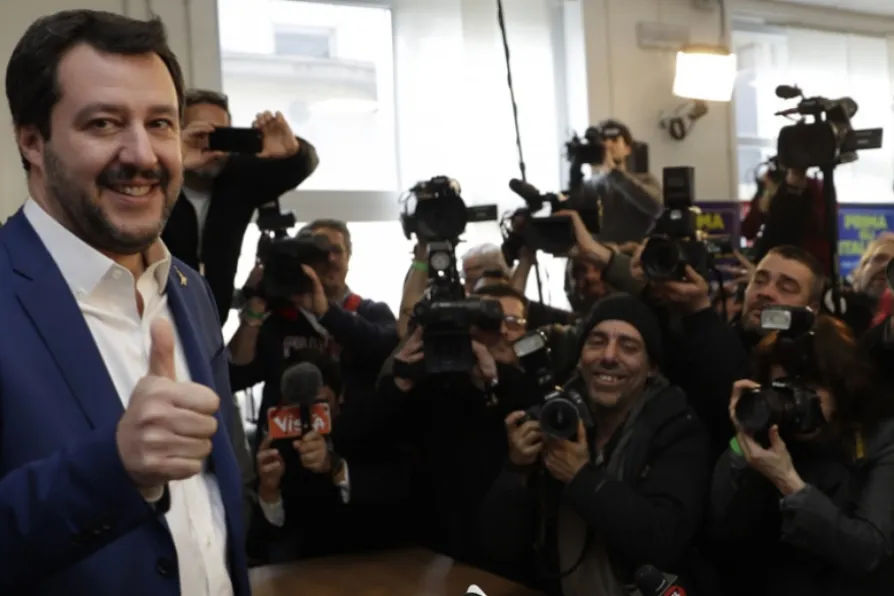
 The League's Matteo Salvini gives the thumbs up as he arrives to give a press conference on the preliminary election results, in Milan
The League's Matteo Salvini gives the thumbs up as he arrives to give a press conference on the preliminary election results, in Milan
ITALY’S election results show the radical right is continuing to advance across the continent — and expose the ongoing decline of what liberals term the “centre-left.”
Matteo Renzi’s Democrats, the party of incumbent Prime Minister Paolo Gentiloni, suffered “not a defeat, but a disaster,” as Daniela Preziosi writes in Il Manifesto, limping in with less than a fifth of the popular vote.
Victory is now being claimed both by the contradictory but chauvinist Five Star Movement, which emerged as the largest single party, and the so-called “centre-right coalition” which brings together the party of sex pest and tax fraudster Silvio Berlusconi, Forza Italia, with Matteo Salvini’s League (formerly the Northern League) and the Brothers of Italy, organisations that flirt more openly with fascism.


















